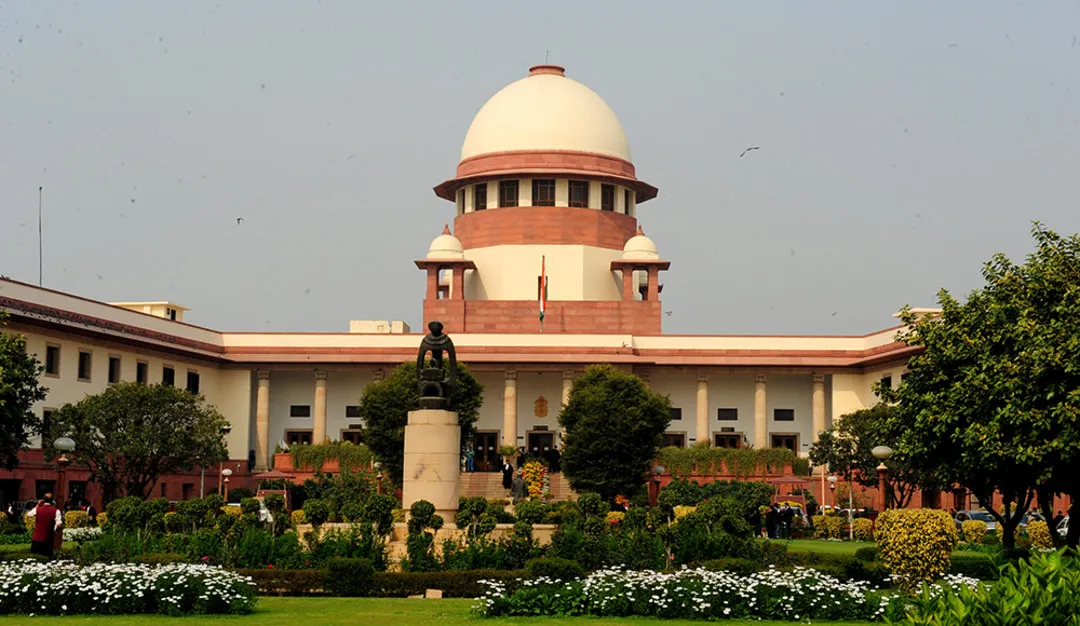With the outbreak of the Covid-19 pandemic and the consequential worldwide commercial disruption, and with almost all businesses suffering severe losses, it is more important than ever that disputes get resolved in a timely and efficient way. While the Covid-19 pandemic and the lockdown imposed in India has, on the one hand, seriously impacted a wide range of businesses, it has also simultaneously thrown up a number of commercial disputes ranging from delays in performance and termination of contracts in the construction industry and shipping industry to landlord-tenant disputes.
With the probable surge in potential disputes and the reduced capacity at which the judicial system has been compelled to function due to the potential health hazards which may result from a full scale opening of the normal functioning of Courts, the current situation has set the stage for alternative methods of dispute resolution to become the preferred mode of settling commercial disputes. In the view of the authors, in the present situation of crisis, which will perhaps last the rest of the year, and the commercial repercussions of which may of course continue for much longer, one of the most efficient and cost effective ways to resolve a dispute would be through mediation. It has once been said that an ounce of mediation is worth a pound of arbitration and a ton of litigation – this is more true today than ever before.
MEDIATION AND ITS BENEFITS
Mediation as a means of dispute resolution may not have been embraced in India as much as it probably deserved. While it is often resorted to at the suggestion of the Courts in the context of matrimonial and family disputes, it is not the first resort for commercial disputes which are still resolved either by traditional court litigation or now increasingly through arbitration.
However, the inherent flexibility of the mediation process provides significant advantages over traditional court centric litigation. First, in the mediation process, parties have much greater control over the terms on which a dispute is settled. While in a successful mediation neither party would enjoy a complete victory, which may have been the result of a litigation or arbitration, mediation allows parties to reach a half-way house which can often work to preserve the relationship between parties in the long run. Secondly, it substantially reduces the costs one would incur if a dispute were to be resolved through the Courts or through arbitration, both of which provide multi-layered avenues of appeal or review. Thirdly, it substantially reduces the delay which results from resolving disputes through Courts or even in arbitration. This itself often allows parties to preserve their relationships as long drawn stressful Court battles result in growing bitterness between parties, both in familial and commercial relationships. Fourthly, parties can arrive at workable solutions free from legal technicalities which may work to the advantage of both parties. Often the traditional Court process impedes the possibility of this as an out-of-the-box solution cannot be reached unless parties sit across the table. Fifthly, the presence of a well-trained mediator is key to help parties temper expectations and can help to diffuse tensions. In this regard, Mediation is more effective than simplicitor settlement talks between parties and their legal counsel, as legal counsel are, by the nature of their profession and training, often tempted to adopt an adversarial style even in negotiations. The presence of a neutral mediator can often provide a mature and well balanced perspective and help narrow the dispute into a zone of possible agreement. These are only some of the many advantages of the mediation process.
With the growth of the mediation movement in India and an increasing understanding and acceptance of the benefits of mediation, the Hon’ble Supreme Court had in March 2019 suggested that the Government consider the feasibility of enacting the ‘Indian Mediation Act’ to take care of various aspects of mediation. (M.R. Krishna Murthi v. New India Assurance Co. Ltd. 2019 SCC OnLine SC 315)
PRE-INSTITUTION MEDIATION UNDER THE COMMERCIAL COURTS ACT, 2015
While the ‘Indian Mediation Act’ as recommended by the Hon’ble Supreme Court has not yet been enacted and most mediations are initiated by a Court directive under Section 89 of the Code of Civil Procedure, 1908, it is important to note that a concrete step to extend the benefits of mediation to commercial disputes was taken with the 2018 Amendment to the Commercial Courts, Commercial Division, Commercial Appellate Division of High Courts Act, 2015, (“Commercial Courts Act”), a legislation enacted with the objective of achieving the speedy adjudication of commercial disputes.
Section 12A of the Commercial Courts Act (inserted in 2018), provides that suits, which do not contemplate any urgent relief under the Act, shall not be instituted unless the plaintiff exhausts the remedy of pre-institution mediation in accordance with the manner and procedure as may be prescribed by the rules made by the Central Government in this regard. It further provides that the Central Government may authorise authorities constituted under the Legal Services Authorities Act, 1987 to conduct such pre-institution mediation. Such mediation is to be completed within three months, which may be extended by a further period of two months with the consent of the parties. Pertinently, the period for which the parties remain occupied with pre-institution mediation is not computed for the purpose of limitation. If parties to a commercial dispute, arrive at a settlement, it will be reduced to writing and signed by the parties and the mediator. A settlement so arrived at under these provisions of law has the same status and effect as an arbitral award on agreed terms under Section 30(4) of the Arbitration and Conciliation Act, 1996.
The Commercial Courts (Pre Institution Mediation and Settlement) Rules, 2018 framed under the Act, set out the procedure for the conduct of such pre-institution mediation of commercial disputes and make provisions for flexibility as well as confidentiality. During the course of mediation proceedings, the mediator may hold meetings separately or jointly with the parties to the dispute as he/she thinks fit. The parties can share settlement proposals with the mediator in separate sittings with specific instructions as to which parts of such proposals may be shared with the opposite party. They can exchange settlement proposals with each other either orally or in writing. (Rule 7) The mediator, the parties and their authorized representatives or counsel are bound to maintain confidentiality with respect to the mediation and the mediator is not to allow the stenographic, audio or video recording of the mediation sittings. (Rule 9) Before commencing the mediation, the parties are to pay a one-time mediation fee, to be shared equally, which is specified as per the quantum of the claim.
THE ADDED ADVANTAGES OF MEDIATION IN THE TIME OF COVID–19
With the pandemic in which we find ourselves today, with the Courts being compelled to function at a reduced capacity, social interactions and commercial transactions being forced to take place remotely and commercial enterprises facing a financial crunch, the authors believe that today resorting to mediation is a practical and cost effective mechanism to resolve disputes. In fact, as far as fresh commercial disputes are concerned, the present period of crisis can be utilized to complete the leg of pre-institution mediation envisaged under the Commercial Courts Act. Thus, even if the dispute cannot be effectively resolved through mediation, completing this leg in the present period, during which the Courts are in any case functioning at a reduced capacity, would save the valuable time for both parties.
Mediation primarily relies on reconciling disputes through persuasion and discussions and avoids a heavy reliance on voluminous briefs and deliberations on fine points of law. Being the least cumbersome and technical of the various methods of dispute resolution, mediation lends itself well to being conducted online with the use of technology rather than in person. Many mediation centres (such as the Mediation Centre of the Hon’ble High Court of Delhi ‘Samadhan’) have, for quite some time now, been making use of technology in conduct of mediation. The present pandemic has only made the need for the use of such technology even more indispensable.
Today, even mediation institutions which have not embraced online platforms must take this opportunity to do so. The authors believe that amidst the chaos in which we find ourselves, an open minded approach to the more unconventional methods of dispute resolution would certainly benefit any party which finds itself on the brink of a dispute. Today, to handle differences practically and find creative solutions is the need of the hour which would not only save time and money in the long run but, as a happy byproduct, may also reduce the mental stress of parties, certainly a change which is not unwelcome in present scenario.
The authors are Advocates of Karanjawala & Co. practicing in the Hon’ble Supreme Court of India and the Hon’ble High Court of Delhi. Ms. Nandini Gore is a Senior Partner, an Advocate on Record and a Mediator, Supreme Court of India. Ms. Tahira Karanjawala is a Principal Associate and an Advocate-on-Record. Mr. Arjun Sharma is a Senior Associate with the firm.






















